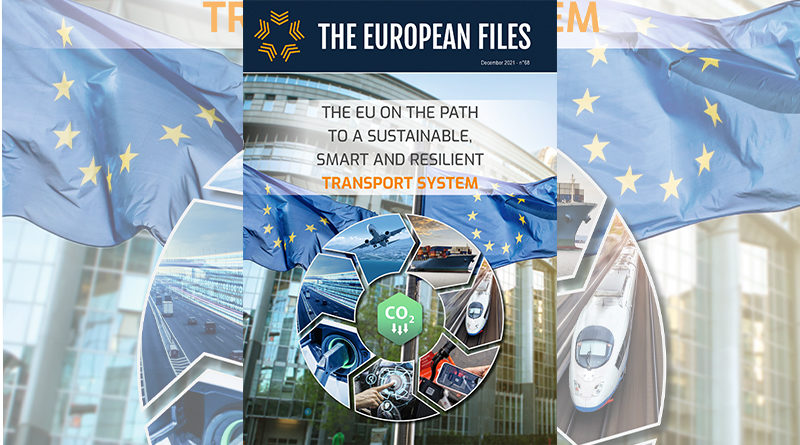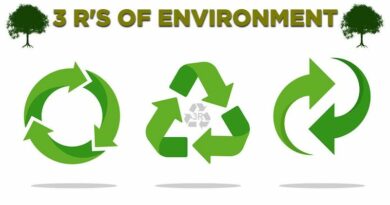
THE EU ON THE PATH TO A SUSTAINABLE, SMART AND RESILIENT TRANSPORT SYSTEM
The EU is committed to being climate-neutral by 2050. Mobility has emerged as one of the major challenges of the energy transition.
As such, means of transport and travel need to be optimised to preserve the environment.
Introducing its “Fit for 55 package”, the European Commission is now speeding up the transition towards low-emission mobility that is both inclusive and accessible to all. This should enable the EU to meet the climate goals of the European Green Deal and includes a series of proposals to revise EU legislation.
An action plan for the wider use of alternative fuels for all modes plays a significant role in the decarbonisation of transport.
The aviation and maritime sector are given a strong political impetus/signal through the revision of the rules on infrastructure as well as legislations on the deployment and use of alternative fuels, with the new ReFuelEU Aviation and FuelEU Maritime initiatives. It introduces for the first time ever measures to consider the whole life cycle of fuels used by ships in a hard-to-decarbonize sector. For cars, the Commission shows even a stronger ambition, with a de facto ban of internal-combustion engine vehicles by 2035.
A number of large intermodal infrastructure projects are currently underway (rail, aviation and maritime) and can provide solutions in terms of reducing our carbon footprint, optimising our logistic chains for freight or decongesting our cities.
It is important to emphasise that the Sustainable and Intelligent Mobility Strategy lays the foundations for a green and digital transformation and for greater resilience to future crises. Creating an ecosystem to optimise and digitise the supply chain is a key component of sustainable mobility.
Greater digitalisation as well as sound data management will play a vital role in the transformation of mobility and the transport industry in Europe.
The transport sector is a driver of the European economy and will need to adapt quickly and find ways to increase its efficiency through technological innovations and investments for a swift roll-out of low emission transport. New mobility models will entail a safer, multimodal, inclusive, more efficient approach.
The aim of this issue of The European Files is to highlight the growth opportunities within the mobility sector and the implementation of an ecosystem of available and efficient infrastructure, while enabling cleaner and more convenient means of mobility for its users.
Editor-in-Chief
Laurent ULMANN
- How could the EU transport system achieve its green and digital transformation?
Commissioner for Transport, European Commission - How can we make the European transport system more resilient to future crises?
Minister of Infrastructure of the Republic of Slovenia - Decarbonization isn’t the end of mobility— it’s a new beginning
French Minister Delegate for Transport - Put the right incentives in place to drive the transition to clean mobility
Finnish Minister of transport and Communications - A pathway for green investment in transport
EIB Vice-President responsible for transport operations. - The role of the Alternative Fuels Infrastructure Regulation
MEP (S&D Group – Germany), Member of the TRAN Committee European Parliament, Rapporteur for Deployment of alternative fuels infrastructure, and repealing - Investing in a sustainable future of mobility: Why the EU must remain open-minded to the various technical solutions
MEP (EPP Group – Germany), Member of the ITRE Committee - Shifting to Europe’s Rail
Executive Director, Shift2Rail - Driving the EU towards sustainable automotive mobility
MEP, (Renew Europe – France), Rapporteur on CO2, emissions standards for cars, in ITRE (Committee on Industry, Research and Energy), Founding President, and co-chair of the Sustainable, long-term investments & European, competitive industry intergroup - The ever changing European Transport system
MEP (EPP Group – Austria), Member of the TRAN Committee - Aviation Fuels in Europe ReFuel EU Aviation: A route to net zero European aviation
MEP, speaker of the EPP Group in TRAN Committee and chair of the European Parliament’s Sky and Space Intergroup - Regulatory and financial environment to support the decarbonisation of aviation
Senior Vice President, Head of Europe and NATO affairs at Airbus - Decarbonisation of Aviation – Will the EU ETS Aviation proposal fly?
MEP (Renew Europe – Germany), Vice-Chair and Member of the Committee on Transport and Tourism (TRAN), Member of the Committee on Development (DEVE) - Clean Aviation soars to new heights
Executive Director of Clean Aviation Joint Undertaking - Better mobility, better city, better life
President of Eurocities and Mayor of Florence - Micromobility “Made in Europe” to Achieve our Climate Targets and Make our Cities More Sustainable
CEO of EIT InnoEnergy - Consumer policy can help clean up transport in Europe
Director General – BEUC - Comfortable, Clean, Autonomous: The Transformation of Public Transport
ZF Group, Executive Vice President Autonomous Mobility Systems - Efficient roadworthiness tests will improve road safety on Europe’s roads
MEP (EPP Group – Belgium), Member of the Committee on Transport and Tourism - True climate neutral mobility beyond the tailpipe – decarbonizing supply chains
CEO of Polestar - Towards future-proof inland waterway transport and ports
MEP (Renew Europe – Netherlands), Member of the TRAN and ECON committees. - The ets extension to maritime: finally contributing its fair share
MEP (EPP Group – Germany), ETS Rapporteur incl. Maritime, Member of the ENVI Committee - The overall objective is to enable safe, secure and sustainable maritime transport
Executive Director, European Maritime Safety Agency - Data: the fuel that feeds digitalisation
Deputy Director General, DG Mobility and Transport ( MOVE), European Commission - Reduce CO2 emissions on transport by new services provides by digitalization
MEP (EPP Group – Finland), Member of the ITRE and TRAN Committee’s - Building an ecosystem to optimize and digitize the supply chain for sustainable mobility
Executive Director, Sixfold - CINEA, funding infrastructure for a greener Europe
Director, CINEA - The future of electrification is already here: it’s now time to scale-up battery R&I
Secretary-General of The Batteries European Partnership Association (BEPA)



